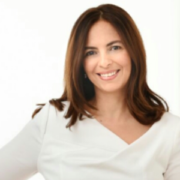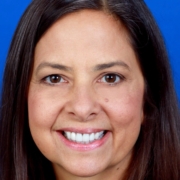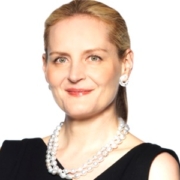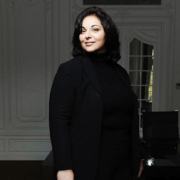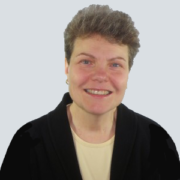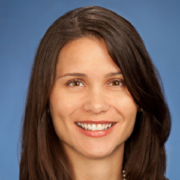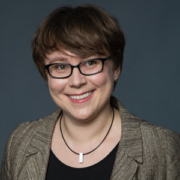Voice of Experience: Dalia Ahmed, Executive Director, Ultra High Net Worth, UBS
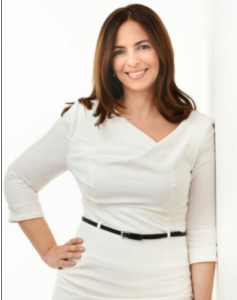 Young professionals tend to take everything personally – whether comments come from colleagues or clients. “It’s easy to be sensitive, but it’s important to realize that most of the time, the comments or feedback are not personal. Developing a thick skin, especially in a male-dominated environment, will help you succeed,” says UBS’ Dalia Ahmed.
Young professionals tend to take everything personally – whether comments come from colleagues or clients. “It’s easy to be sensitive, but it’s important to realize that most of the time, the comments or feedback are not personal. Developing a thick skin, especially in a male-dominated environment, will help you succeed,” says UBS’ Dalia Ahmed.
Deep Relationships Propel Her Career
This observation has helped Dalia throughout her professional life, which has been focused on building strong relationships with her clients. She began her career in London, joining Coutts bank where she spent 8 years covering private banking clients in the Middle East. After the birth of her second child, she took a short break and then joined UBS in Dubai as the second client advisor in their first advisory office in the region, a position she still holds.
Over the past decade she is proud of the trusted advisor role she has achieved. “That’s the most important factor in this business — becoming part of clients’ lives and not just as a banker,” she says. “I’m proud of the deep relationships I’ve built with these amazing families and being invited to share in their success stories.” She notes that by nature her ultra-high net worth clients are very interesting people and although their conversations begin around finances — investments, risk and return, performance, etc. — these exchanges frequently turn to the personal side.
They’ll discuss issues much closer to the client’s heart, such as the client’s vision for the family and family business, whether the children are ready to take over and any specific educational needs for the next generation.
“Research shows that less than one-third of family businesses survive the transition from first to second generation ownership and another 50% don’t survive the transition from second to third generation. I meet many families whose main concern is how to efficiently transfer their business and wealth to the next generation,” she says.
One of the areas that she finds most interesting in the industry today is the rising trend of ultra-high net worth families setting up family offices for intergenerational wealth transfer. This has highlighted the need for private banks to think more radically about how they can best serve this type of client, she says, because a traditional wealth management setting will not be sufficient for the sophisticated demands of these family offices. “Increasingly private banks will have to include services such as global custody, lending, execution, investment banking, private markets and more, which of course not all private banks have the scale to provide.”
In her client-facing capacity, every day is interesting because she is constantly meeting new people and forging new relationships. “You have to make sure you are always doing something satisfying and inspiring or every day will be challenging. If you don’t enjoy what you’re doing, the pressure and hours can be very difficult to manage,” she says.
Helping Women Be Successful in the Industry
Although the industry begins with a 50/50 male/female split, female attrition happens as they rise through the ranks. The question, Dalia notes, is why women leave the industry. She believes that there are no structural barriers or barriers caused by overt hostility but rather an ingrained unconscious bias about what it takes to perform at the top, such as being aggressive and determined, attributes people are less likely to ascribe to women. “These issues are very subtle which makes them harder to identify and tackle,” she says.
The male-dominated culture can be intimidating to talented women, she says, but notes that much of the reason there are more men are because of lifestyle issues: late nights and overnight travel become more difficult, and many women are likely to look at that lifestyle and decide they don’t want to do that. “Financial industries need to change their old-fashioned work practices that reward people for working at the office late at night, because it’s not conducive to many women who have families at home,” she says.
That’s why she encourages women who have risen in the industry to realize the importance of being role models for younger women. “Since we are a minority it’s more important than ever for us to help each other, to be visible. We have to show the new female entrants that women can succeed in these positions.”
She is proud of the initiatives UBS has developed to support women and create change within the culture, such as the Diversity and Inclusion Council that ensures that the firm creates an open environment. As a service organization with a diverse client base, it’s particularly important that they be visible with a diverse workforce.
The firm is in the midst of rolling out training in unconscious bias that all wealth management staff will take by 2018. The training will cover gender and other diversity issues that she says forward-thinking firms have to learn how to acknowledge and overcome. One area ripe for additional focus is supporting and retaining women after maternity leave.
Ahmed participated in the Women in Wealth Forum, an annual event that provides a platform for women to network and bolster their skills and is very supportive of the Leading Women of Wealth Management group, which provides coaching and helps women develop their talents. She encourages young professionals to seek out similar groups to help them nurture relationships with a trusted mentor who can offer advice in the challenging situations that are sure to arise.
In her free time, Dalia likes to read and cycle, but most of all she focuses on spending time with her children, a son, age 14, and a daughter, age 11. “I love to listen to their views and opinions; their simple perspective helps me to cut through all the unnecessary complexities of life.”

